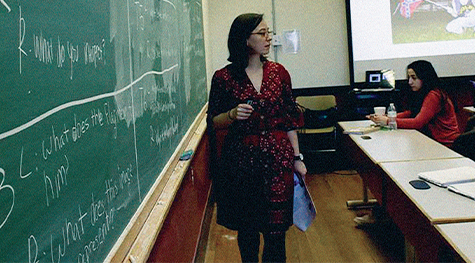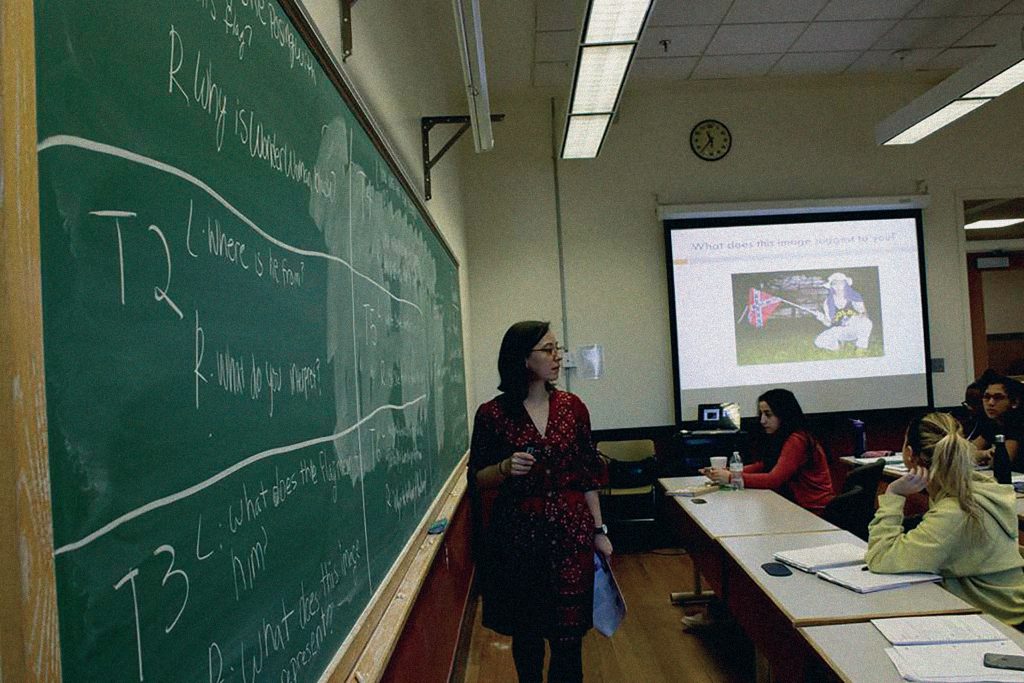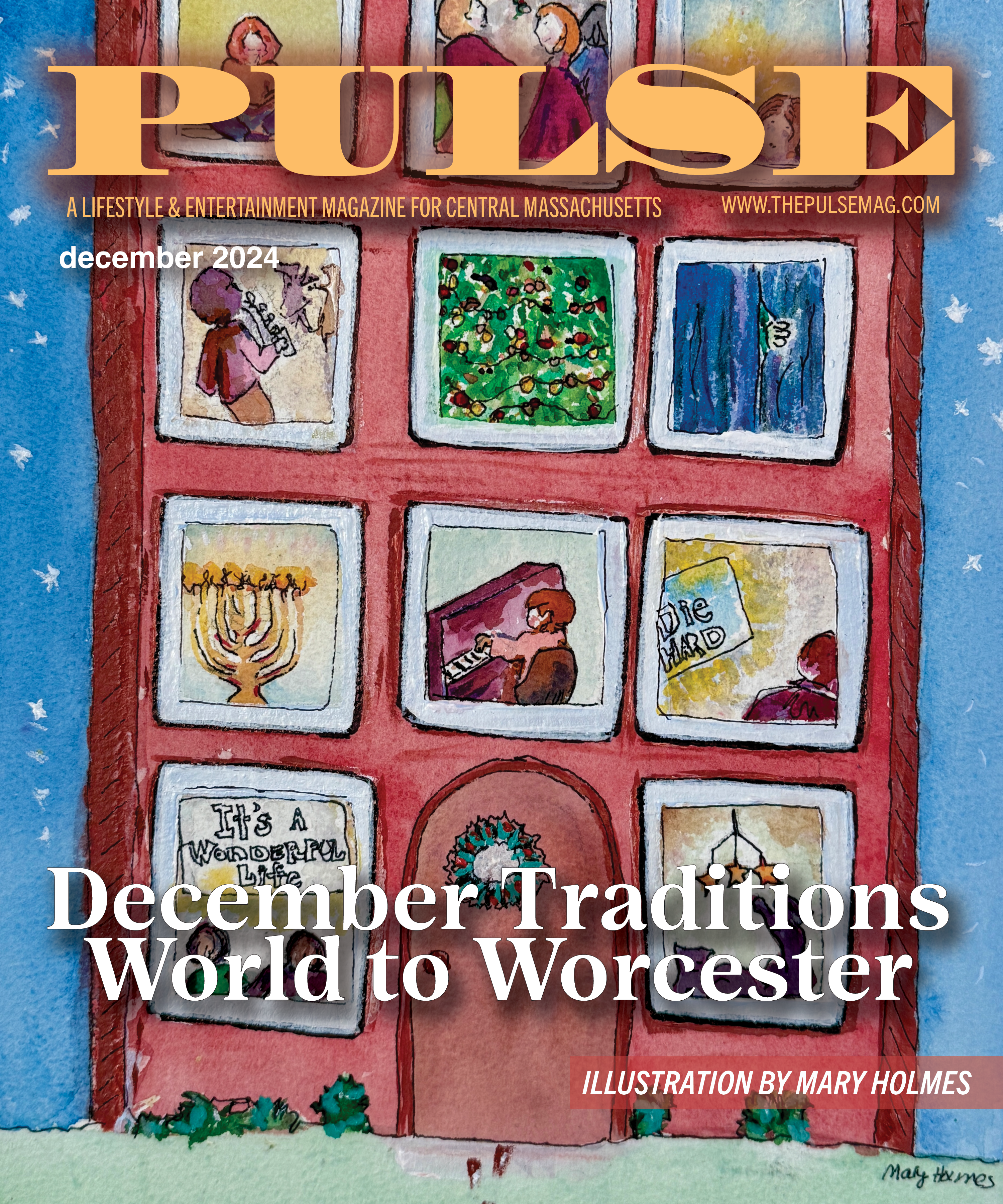
Janice Elizabeth Berte
Over the past few years, Framingham State University has been hit with some unfortunate racial incidents that have not only impacted the college, but also the faculty and students. Many faculty members are upset over these situations, and students, in particular, needed to voice their opinions to feel heard.
Enter sociology professor Lina Rincón, an immigrant from Colombia who has been in the United States for 14 years.
“Since I moved to the United States, I personally have been treated differently by society in many ways because of my Spanish accent. I look like a white woman, but sometimes I get stares or looks once I start speaking in my native tongue,” said Rincón.
This kind of treatment has had a profound effect on Rincón, which led her to integrate poetry as part of her Qualitative Methods class. Rincón teaches and makes the students feel that they matter and that their view is important to hear for healing purposes. She incorporates deep conversation with her students, and writing poetry has allowed them to open up in ways that has been cathartic for everyone in class, not just students of color.
“There is a lot of systemic issues in the country, and I want my students to feel free and not criticized when they view their opinions on such personal and volatile issues,” Rincón said. “Writing down your thoughts in a poetic structure has freed many of my students so they don’t feel ostracized. There is a lot of privilege towards certain groups of people in society, and that people of color will sometimes get treated unfairly particularly when it comes to job opportunities or other advantages one might receive in life.”
As part of her class, Rincón paired up her students, and they interviewed each other. These questions allowed students to learn about their views on race relations and reflect on each other’s perspectives. At the end of these interviews, all of her students had the chance to express their thoughts and feelings about race relations as something that affects them personally and as something that impacts their peers. In conclusion, all of her students felt more compassionate and wanted to make changes so everyone can have equal chances in life.

Poems by Framingham State University student Nicole Harvey and Professor Lina Rincón.
I am Nicole
Author: Nicole Harvey
To Whom It May Concern:
I am not just a color
I am not just “black”
Truthfully, my skin isn’t even black
But instead a darker shade of nude
I am much more than your stereotypical loud black girl, who has daddy issues, and likes fried chicken
I am loud, I do like fried chicken, but I DON’T have daddy issues
I am not adopted, although people TELL ME that I am
I am beautiful, intelligent, and know my worth
I know the ways to you racists
I know to never give up
I know to keep fighting for me and what I want
Just because you were not caught, does not mean you won
I am still here, still achieving, and still reaching my goals
But one thing I do know is that my “black” will always shine
One thing I want you to know is that….
Yes, my name begins with “N”, but it will never end with an “R”
I am and always will be, Nicole.
Band-Aid
Author: Professor Lina Rincón
I live with an open wound.
It is here and there that I forget about it.
When I do, I trust with an open heart.
The wound appeared unexpectedly.
They told us to go back to our part of town.
A rush of blood went through my small five-year-old head.
I felt the outraged blush in my face.
The blood pushing through exposed the wound.
I breathe through an open wound.
It is when I am present, that air circulates through my lungs.
When I do, I am home with my loved ones.
The wound seems to get smaller when I sleep at night.
I barely feel it.
The blue man chases me in my dreams though.
The sweats, the terror.
Wound bursts. I wake up.
I carry my open wound.
It is the warmth of my coat that safely covers it.
When it does, I am with you and with the fire.
The wound gets exasperated when you put a band-aid on it.
I close my eyes and try to understand.
Why can’t you recognize? The wound did not appear yesterday.
How come you won’t see me?
I live with an open wound.





